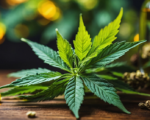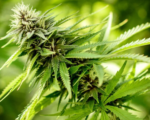Thailand, which made headlines as the first Asian country to decriminalise cannabis in June 2022, has reversed its decision and banned recreational use of the plant. The move comes as a disappointment to many locals and tourists who hoped to enjoy the benefits of cannabis in the country.
Thailand’s health ministry released a draft bill on January 16 that outlined the new rules and regulations for cannabis in the country. The bill proposed to fine or imprison anyone who uses cannabis for non-medical purposes, or both. The bill also asked for public feedback on the draft amid the country’s booming cannabis industry.
According to the bill, anyone who consumes, possesses, or cultivates cannabis for recreational use could face a fine of up to 60,000 Thai baht (approximately AUD$2,500) or a prison sentence of up to one year, or both. Anyone who advertises or promotes recreational cannabis use could also face a fine of up to 500,000 Thai baht (approximately AUD$20,800) or a prison sentence of up to five years, or both.

The bill also stated that cannabis and cannabis-related products would be limited to medical and health purposes only, and that anyone who wants to use cannabis for such purposes would need to obtain a prescription from a licensed doctor or pharmacist, or a certificate from a traditional healer. The bill also specified the conditions and diseases that qualify for medical cannabis use, such as cancer, epilepsy, Parkinson’s disease, and chronic pain.
How did cannabis tourism develop and decline in Thailand?
Cannabis tourism was a phenomenon that emerged in Thailand after the country decriminalised cannabis in June 2022. The historic decision made it legal to grow and trade cannabis and hemp products, or to use any parts of the plant to treat illnesses. However, smoking cannabis in public was still illegal and could violate public health laws.
The decriminalisation of cannabis sparked a lucrative industry worth 28 billion Thai baht (around AUD$1.2 billion) that catered to locals and tourists alike. More than 6,000 cannabis dispensaries and businesses, such as weed cafes and hemp spas, popped up across Thailand, offering a variety of cannabis-infused products, such as drinks, sweets, cosmetics, and souvenirs. Bangkok and Chiang Mai even hosted hemp festivals and cannabis-themed events.
However, the new government under Prime Minister Srettha Thavisi, who took office in November 2022, vowed to “rectify” the cannabis policy and limit its use to medical purposes only. The government argued that recreational cannabis use was harmful and addictive, and that it could increase the risk of mental disorders, especially among young people. The government also claimed that cannabis tourism tarnished the country’s image and reputation .
What are the impacts and implications of the cannabis ban for Thailand?
The cannabis ban for recreational use has significant impacts and implications for Thailand, especially for its economy, society, and tourism. Some of the possible effects are :
- A loss of revenue and jobs for the cannabis industry and its stakeholders, such as farmers, entrepreneurs, and employees, who invested in the plant and its products. The industry also contributed to the tax income and the GDP of the country.
- A backlash and resentment from the cannabis users and supporters, who enjoyed the benefits and the freedom of cannabis in the country. Many of them expressed their disappointment and anger on social media and online platforms, and some even threatened to boycott or protest against the government.
- A decrease in tourist arrivals and spending, as many tourists who were attracted by the cannabis culture and the availability of cannabis products in the country may cancel or change their plans. Thailand, which relies heavily on tourism for its economy, may lose its competitive edge and appeal to the international market.
Maria Garcia is an award-winning author who excels in creating engaging cannabis-centric articles that captivate audiences. Her versatile writing style allows her to cover a wide range of topics within the cannabis space, from advocacy and social justice to product reviews and lifestyle features. Maria’s dedication to promoting education and awareness about cannabis shines through in her thoughtfully curated content that resonates with both seasoned enthusiasts and newcomers alike.








